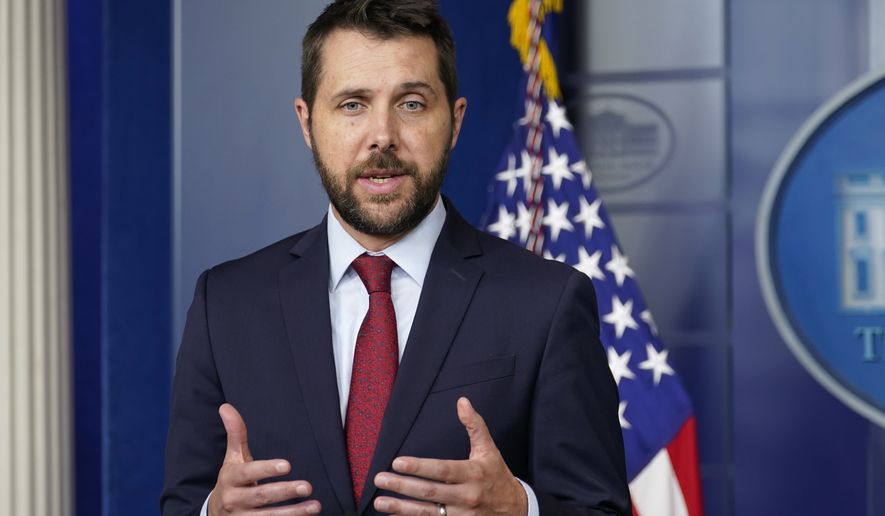The director of the National Economic Council on Sunday dismissed warnings that President Biden’s “Build Back Better” bill will increase inflation.
Brian Deese, the president’s top economic adviser, said ratings agencies have said the $1.75 trillion plan will not add to inflationary pressure.
“There is no question inflation is high and it’s affecting American consumers and it is affecting their outlook, but that is actually why we need to move on this Build Back Better bill right now,” Mr. Deese said on “Fox News Sunday.” “Experts across the board have looked at it and concluded that it won’t increase inflation because it is paid for. When you pay for investments you don’t actually add aggregate demand to the economy.”
House Democrats passed a version of Mr. Biden’s multitrillion-dollar social welfare bill on Friday and sent it to the Senate, where its fate likely rests on the shoulders of Democratic Sens. Joseph Manchin of West Virginia and Kyrsten Sinema of Arizona.
GOP leaders and budget hawks have warned the spending in the bill is too much, given the recent surge in inflation, which has jumped 6.2% in the last year, according to the Labor Department.
That has led to sticker shock at the gas pump and in grocery stores, and created political headwinds for Mr. Biden, whose approval rating has been on a downward trajectory.
In a 220-213 vote, the Democrat-controlled House voted to approve the more than 2,000-page bill only hours after the Congressional Budget Office, a nonpartisan federal agency, had released a report showing it would add more than $367 billion to the federal deficit over the next 10 years.
Mr. Biden has vowed the agenda would cost “zero dollars.”
“Every page of the Democrats’ socialist spending scam will be paid for by or borrowed from America’s hardworking taxpayers,” said House Minority Leader Kevin McCarthy, California Republican. “This is the single most reckless and irresponsible spending bill in our nation’s history.”
Mr. Deese said Sunday that Fitch Ratings and Moody’s Investors Service have said the bill will not add to inflation, while dismissing the criticism that the proposal relies on budget gimmicks.
“We are relying on official estimates that have looked at the provisions in this bill,” he said. “Those provisions in this bill will generate tax revenue, will reduce spending across time and those resources will be invested in things that will lower costs for families like lower prescription drug costs, lower prescription drug cost and lower child care costs and lower elder care costs.”
- Haris Alic contributed to this report.
• Seth McLaughlin can be reached at smclaughlin@washingtontimes.com.




Please read our comment policy before commenting.